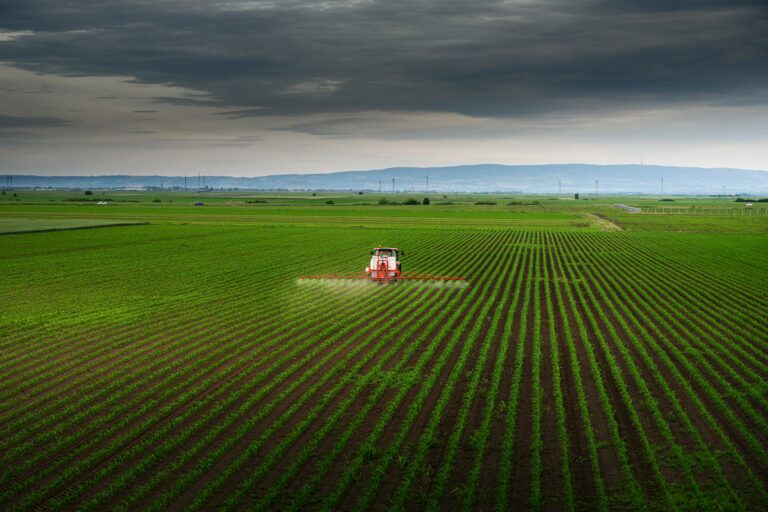
Dave Antrobus, a notable figure in the realm of technology, is exploring the transformative potential of artificial intelligence in modernising UK agriculture. By integrating AI, the UK’s agricultural sector can enhance efficiency and productivity, a crucial step in addressing the challenges of a growing population and limited resources. AI’s ability to analyse large data sets allows farmers to optimise crop yields, manage resources better, and reduce waste.
Antrobus highlights that AI-driven solutions, such as precision farming and automated monitoring systems, can revolutionise traditional farming methods. These technologies offer real-time insights and predictive analytics, enabling farmers to make informed decisions on irrigation, fertilisation, and pest control. This technological shift not only boosts productivity but also promotes sustainable farming practices.
The role of AI in UK agriculture also extends to adapting to climate change impacts. By leveraging AI, farmers can predict weather patterns and climate-related risks, safeguarding crops against unforeseen events. Antrobus advocates for a future where AI is central to creating resilient farming systems that align with environmental responsibilities.
Empowering Agriculture Through AI Technologies
AI technologies are transforming agriculture by enhancing efficiency, promoting sustainable practices, and optimising supply chain management. Key advancements in machine learning, artificial intelligence solutions for sustainability, and improvements in supply chain management play crucial roles.
Advancements in Machine Learning for Farming Efficiency
Machine learning is shaping the future of farming by allowing rapid analysis of vast datasets. This helps farmers make informed decisions, resulting in increased productivity. AI algorithms can predict weather patterns, plant diseases, and soil quality. By doing so, it enables adjustments in crop management, ensuring better yields and reducing waste.
Farm machinery embedded with AI can perform tasks like soil analysis and crop monitoring autonomously. This automation significantly reduces labour costs and augments efficiency. The development of AI-powered drones further supports precision agriculture, inspecting large areas swiftly.
AI Solutions for Sustainable Farming Practices
AI plays a pivotal role in implementing sustainable farming methods, crucial for meeting sustainability goals. These technologies assist farmers in optimising water use and minimising chemical inputs, reducing environmental impact. Advanced AI tools monitor crop health, suggesting timely interventions that limit resource use.
AI technologies support regenerative agriculture by recommending practices that enhance soil health and carbon sequestration. Robotics integrated with AI can execute environmentally friendly tasks like targeted spraying, ensuring sustainable energy usage. As a climate action tool, AI aids farmers in adapting to climate change challenges.
Role of AI in Enhancing Supply Chain Management
Supply chain management benefits greatly from AI, offering solutions aimed at efficiency and transparency. AI-driven platforms analyse logistics data, ensure timely deliveries, and reduce delays. Enhanced visibility enables better inventory control, aligning with sustainability targets by minimizing waste.
AI technologies facilitate real-time monitoring, ensuring quality management and compliance with sustainability standards. By improving forecasting, AI supports economic growth, helping businesses adapt to market demands efficiently. The integration of AI in these systems can also aid in tracking carbon footprint, aligning agricultural practices with broader environmental goals.
Navigating Ethical and Regulatory Dimensions of AI
In the rapidly evolving AI landscape, ensuring fairness, privacy, and compliance is critical. Enforcing strong regulatory measures such as GDPR safeguards both organisations and individuals while promoting accountability and security in AI. These elements are essential for responsible AI applications across industries like agriculture and public services.
Ensuring Fairness and Privacy in AI Applications
Achieving fairness in AI solutions involves creating systems that do not discriminate based on gender, race, or other protected attributes. It’s vital that machine learning models are trained on diverse datasets to mitigate biases. Developers must be vigilant about ethical considerations during the decision-making processes.
Data privacy is another crucial aspect, especially when AI systems handle sensitive data. Protecting user privacy ensures trust in AI innovations. Transparent data handling practices are necessary to uphold data privacy requirements. Stakeholders must also be informed about how their data is collected and used.
AI Regulation: Compliance with GDPR and Industry Standards
Compliance with regulations like the General Data Protection Regulation (GDPR) is non-negotiable for AI startups and established companies. These regulations protect individuals’ personal data rights and enforce transparency. They provide a framework for organisations to responsibly manage AI solutions.
Industry standards, such as the ISO/IEC 22989, offer essential guidelines on AI terminology and concepts. These standards are critical for developing consistent and effective AI governance across industries. AI innovations should align with such frameworks to ensure ethical AI practices and safeguard public interests.
Promotion of Security and Accountability in AI Innovations
Security is a top priority in AI systems, especially with the rise of complex cybersecurity threats. Implementing robust security measures is essential to protect against potential breaches. AI ethics require organisations to be accountable for their AI applications’ actions and consequences.
AI developers should incorporate security features from the design stage and maintain them throughout the AI lifecycle. This includes ongoing risk assessments and updates. Transparency plays a critical role too; it encourages accountability and public trust in AI innovations used in agriculture, public services, and beyond.